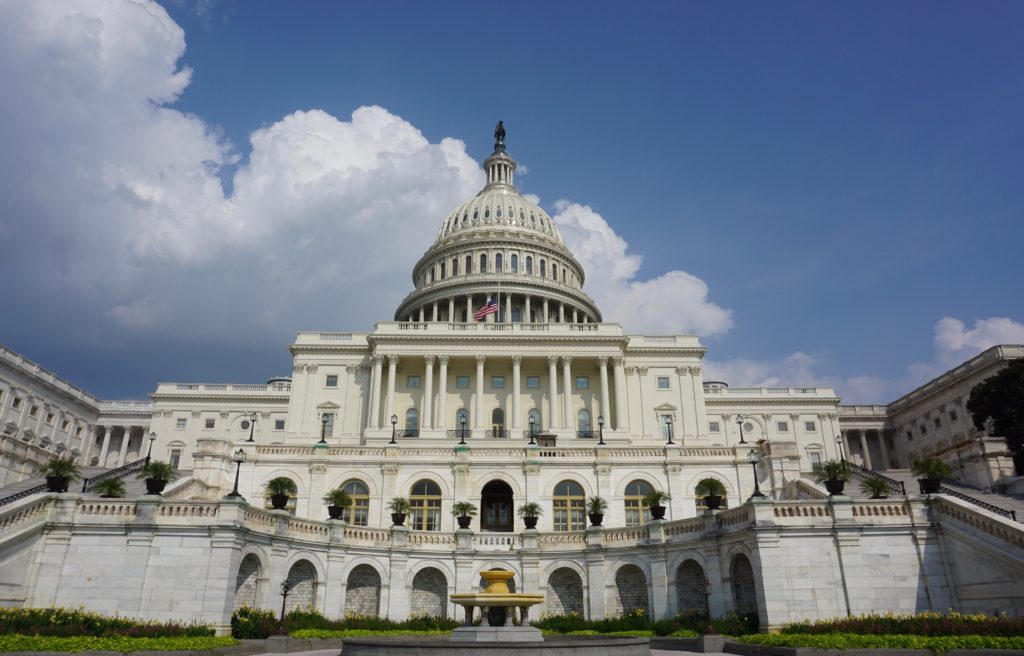
Published November 11, 2022
The votes are still being counted, but we may be headed for an era of closely divided government. Depending on how the final races are called, the balance of power in the House and Senate could hang by just a vote or two. That could open the door to some opportunities for the parties to work together on policies that might make a meaningful difference for American families.
An era of divided government forces legislators to adjust their sights to a more realistic playing field. Instead of trying to force through multitrillion dollar plans to remake the American economy, or fly-by-night plans to repeal Obamacare without a ready replacement, a closely-divided Congress and a Democratic president will have to work together to keep the lights on. This can keep lawmakers humble, encouraging them to, in baseball terms, rack up some singles and doubles rather than swinging for the fences.
Any number of issue areas might attract bipartisan compromise — the growing concern over kids and tech should provide ample opportunity for a bipartisan coalition to pass something like the Kids Online Safety Act, sponsored by Richard Blumenthal and Marsha Blackburn. As my EPPC colleague Clare Morell and I have written, an ideal piece of legislation would go further; but KOSA has bipartisan support and would likely be signed by President Joe Biden.
In the realm of policies that could directly impact families’ pocketbooks, three areas seem to have the most potential for bipartisan compromise.
Currently, the legal landscape that governs how employers must make protections for pregnant employees has some flaws and loopholes. In a post-Roe world, clarifying legal protections for pregnant workers should be a no-brainer. Whether it is the Pregnant Workers Fairness Act, which already passed the House on a bipartisan, 315-101 vote, or a straightforward expansion of existing legal protections to cover pregnancy, childbirth, and breastfeeding, taking care of this legal grey area should be appealing to left-leaning women’s groups and pro-family social conservatives alike — and even the business community says it would welcome the clarity.
Another way of easing families’ financial pressures while working with businesses would be making fringe benefits around child care more generous. Dependent care Flexible Spending Accounts allow parents to pay for care with pre-tax dollars, but tend to be less common among low-income workers. The employer-provided child care credit provides a tax incentive for employers to provide child care benefits, but due to the programs’ limited size and scope, relatively few employers take advantage of the provision. Conservatives could get behind helping businesses shoulder some of the burden of child care for their employees who are parents without putting a thumb on the scale against families that want a parent to stay at home.
The ill-fated “Build Back Better” would have passed an expansive federal paid leave law that was a nonstarter with Republicans. But a narrowly-targeted paid parental leave program, focused specifically on the needs of new parents, could at least attract lip-service support from Congressional leaders. Both parties have enough internal division about what an ideal paid leave program would look like and how it should be funded for this to be fairly unlikely. But as conservative policy analyst Abby McCloskey wrote, there is an argument for a conservative lawmaker to champion paid leave as a meaningful way of supporting families in a post-Dobbs environment.
There is even a small chance that a Congress decided by some lawmakers willing to cross the aisle could deliver a home run. In the divided era of the second Clinton term, pro-family conservatives and anti-poverty progressives come together to pass the original child tax credit. History could repeat itself, perhaps along the lines of Sen. Mitt Romney’s Family Security Act. It would require the left to accept half a loaf instead of their goal of a universal child benefit, and the right to come to terms with a design some find inappropriate, as well as allowing the Biden administration to claim some credit.
Both paid leave and an expanded child tax credit seem challenging to pass in a fractious environment. And the politics of doing anything bipartisan over the next two years will be fraught, even if we assume the GOP decides not to needlessly hold hostages over raising the debt ceiling. Hopefully more GOP lawmakers will listen to Sen. Josh Hawley of Missouri, who called the incipient calls to force a crisis to seek cuts to entitlement programs “dumb.”
Much will depend on how the final ballots get tallied in key races that rely in mail-in voting, but it seems safe to assume that no one should expect any policy home runs in the next two years. But starting from that realization might open up space for some small-ball wins. Those who’d like to see big, sweeping change in either direction will naturally be frustrated; but for those who would like to see Congress spend the next two years doing something other than just partisan bickering, there is at least a little hope.
Patrick T. Brown is a fellow at the Ethics and Public Policy Center, where his work with the Life and Family Initiative focuses on developing a robust pro-family economic agenda and supporting families as the cornerstone of a healthy and flourishing society.
Patrick T. Brown is a fellow at the Ethics and Public Policy Center, where his work with the Life and Family Initiative focuses on developing a robust pro-family economic agenda and supporting families as the cornerstone of a healthy and flourishing society.








